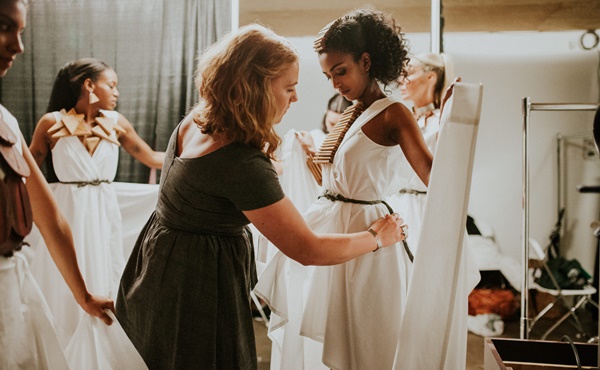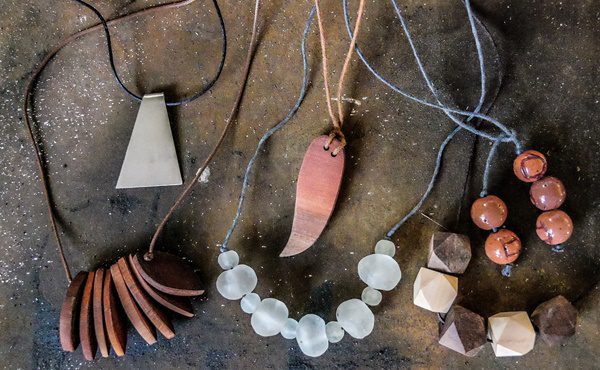Katie Johnston, the founder and CEO of accessories and jewellery business EcoBling, is a woman on a mission to make the world a better place.
Her business creates its products from materials destined for landfill like old car tyres, plants a tree for every piece sold—totalling over 10,000 trees so far—and works with marginalised communities around the world.
Johnston started the brand in 2014 with the desire to express herself creatively and do good things in the world.
“It was so important for me to create EcoBling using an ecofriendly and ethical business model because anything else would have felt inauthentic and forced,” she explains. “For me EcoBling is a physical reflection of who I am as a person—deeply committed to improving the environment and lifting people up who join me on my journey.”
This includes the Indigenous Australian communities EcoBling works with on its IndigiBling collection. As part of this, EcoBling sends wooden jewellery out to communities who then burn stories of the Dreamtime and their ancestral and personal stories onto the pieces.

“The goal for IndigiBling, which has been realised beyond expectations, is to share and celebrate Indigenous Australian culture with the broader public,” says Johnston.
Other EcoBling community partners in Nepal make beads out of rubble from the country’s 2015 earthquake, while others in Kenya craft shoes and belts from old tyres. These products, along with scarves and bags made from recycled materials, will be on display at Life Instyle.
After showing at Eco Fashion Week in Seattle—which Johnston says has been the high point of running EcoBling so far—she is eager to get her pieces into the hands of retailers.
“The biggest challenge of running this kind of business is to reach out to retail stores,” she says. “I am not the best at hard selling over the phone [however] story telling is my absolute favourite thing, especially when I get to tell the amazing stories of EcoBling.
“So, I am very excited to…meet and connect with other people who want to be a fundamental part of creating positive change in the world, through selling our products in their stores.”
Johnston has lots more in the works for EcoBling, including an initiative to empower ex-child brides through workshops and employment as part of the brand’s production community. She is also visiting Kenya, where she will set up a co-working space so people in the community can start their own microbusinesses and hopefully contribute to EcoBling’s collections.
“They already do such a great job upcycling bottles and windows and turning them into gorgeous, colourful beads, so I can’t wait to see what ideas they have.”
By Ruth Cooper







